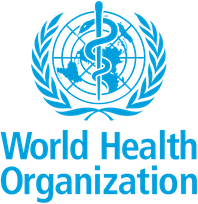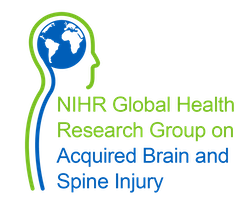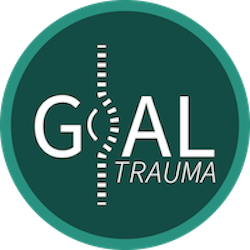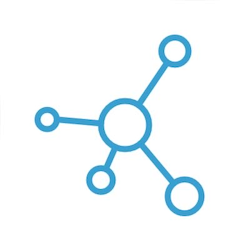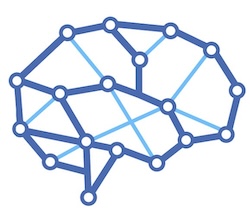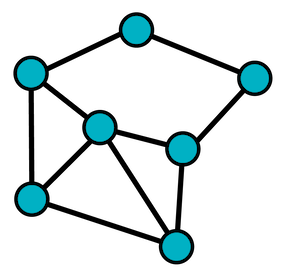
Systems for health equity
The International Health Systems group is an interdisciplinary team comprised of academic engineers and clinicians. We research the improvement of healthcare, through systems thinking, with partners across the world. We believe in a model of participatory action research, based on equitable relationships. Our approach is based on:
- mixed methods approaches to understand how systems function and where they can be improved;
- frugal innovation in systems, processes, and technology;
- using systems understanding to drive changes in clinical care, heath services, and policy.
Systems engineering and design offer powerful perspectives for understanding the complexity of healthcare, particularly for teams working across a cultural and linguistic boundary. We believe in combining rigorous qualitative approaches with advanced data analytics to inform these perspectives, in collaboration with researchers, clinicians, managers, and policy makers.
We work with a large range of local and global partners, including the World Health Organisation's Health Workforce and Trauma Operational and Advisory Teams, Cambridge Global Health Partnerships, the Uganda UK Health Alliance, the Primary Trauma Care Foundation, the Tropical Health and Education Trust, Cambridge Public Health interdisciplinary research centre, and the Cambridge Precision Health Initiative.
Group Members & Collaborators
- Dr Tom Bashford (Principal Investigator, Assistant Professor in Healthcare Systems & Consultant Anaesthetist)
- Prof P John Clarkson (Professor of Engineering Design, University of Cambridge & Professor of Healthcare Systems, TU Delft)
- Dr Katharina Kohler (Consultant Anaesthetist & Lead Clinical Data Scientist)
- Dr Arthur Kwizera (Associate Professor of Anaesthesia & Critical Care, Makerere University)
- Prof Charlie Whiffin (Professor of Nursing, University of Derby)
- Dr Charlotte Hammer (Assistant Professor in Global Risk and Resilience)
- Dr Shobhana Nagraj (Assistant Professor of Public Health and Primary Care)
- Dr Laura Walker (Associate Professor of Emergency Medicine, Mayo Clinic)
- Dr Brandon Smith (Postdoctoral Research Associate)
- Dr Laura Hobbs (Consultant Anaesthetist, WHO Advisor, & Doctoral Researcher)
- Dr Saleyha Ahsan (Emergency Medicine Physician & Doctoral Researcher)
- Dr Mike Bath (General Surgery Registrar & Doctoral Researcher)
- Dr Zahra Hussain (Plastic Surgery Registrar & Doctoral Researcher)
- Dr Anna Hackenberg (Academic Collaborator)
- Dr Hanan Abukmail (Doctoral Researcher)
- Dr Tom Edmiston (Academic Collaborator)
- Dr Sara Venturini (Academic Visitor)
- Dr Daphne Kabatoro (Anaesthetist & Doctoral Researcher)
- Dr Alexander Komashie (Academic Visitor)
- Dr Joachim Amoako (Academic Collaborator)
- Dr Riaz Aziz (Academic Collaborator)
- Dr Tamara Banerjee (Intensivist and Doctoral Researcher)
- Vedha Penmetcha (Graduate Student)
- Abi Schipper (Graduate Student)
Group Funding
The International Health Systems Group has received funding from the National Institute for Health and Care Research (NIHR) through both the Cambridge Biomedical Research Centre and UK international development funding from the UK Government to support global health research. We have also been generously supported by funding from the Wellcome Trust, the Engineering and Physical Sciences Research Council (EPSRC), the Economic and Social Research Council (ESRC), Addenbrooke's Charitable Trust (ACT), the Cambridge-Africa ALBORADA Research Fund, Capabilities in Academic Policy Engagement (CAPE), the Gates Cambridge scholarship programme, and the Cambridge Trust Rowan Williams scholarship programme.
Community & Stakeholder Engagement
The IHSG grounds its research in community engagement, both in the UK and with partner countries.
- A series of data-driven design personas for global trauma systems based upon the GOAL Trauma dataset and validated by a global network of experts in trauma care.
- A report on community perspectives around research into healthcare technology, data and artificial intelligence, conducted between the UK and Uganda with support from Cambridge Public Health and the Precision Health Initiative, can be found at https://doi.org/10.5281/zenodo.14503478.
- A report on the proposed major trauma centre at the Norfolk and Norwich University Hospital NHS Foundation Trust run by the IHSG at Murray Edwards College, Cambridge as part of the Systems Engineering Approach to Major Trauma Centre Design project.
- A report on community perspectives around research into improving trauma care, conducted in partnership with Korle Bu Hospital and the University of Ghana with support from Cambridge Public Health can be found at https://doi.org/10.5281/zenodo.15591812.
Group Partnerships
|
WHO EMRO Regional Trauma Initiative, Trauma Operational and Advisory Team This formal collaboration with the WHO Trauma Operational and Advisory Team (TOpAT), based in the WHO Eastern Mediterranean Regional Office, provides WHO with expertise in health system design applied to trauma care in resource-poor environments. This work seeks to directly support the RTI's policy work to strengthen trauma care in the region. |
|
|
In the Line of Fire: Protecting Health in Armed Conflict This report, in partnership with the WHO and the World Innovation Summit for Health,, discusses trends in global conflict, protective mechanisms for the delivery of healthcare in armed conflict, and the need to build resilience and preparedness through: capacity building, exploring protective measures through adaptive design, engaging more effectively with armed forces and non-state actors, and fostering greater community engagement and education. |
|
|
NIHR Global Health Research Group on Acquired Brain and Spine Injury (ABSI) This multidisciplinary global research group is funded by the NIHR to explore the issues of injuries to the brain and spine through 16 projects, spread across 4 themes, in over 24 countries. Our ABSI research is based in Uganda, exploring the interlinked issues of needs, access and quality of care. |
|
|
Cambridge Public Health is an Interdisciplinary Research Centre at the University of Cambridge which aims to build connections between researchers, foster collaborations with health professionals working outside of academia and conduct research that improves the health and wellbeing of populations. The IHSG directly supports the Global Health and Technology & Systems domains of CPH. |
|
|
Cambridge Global Health Partnerships Cambridge Global Health Partnerships (CGHP) is a hub and leader for global health in the East of England, which connects individuals and teams across the world to share knowledge, skills, resources and experiences. CGHP programmes are fundamental to many of the IHSG research partnerships, allowing us to link research to practical action. |
Associated Projects
|
Follow Up Technology Usability and Readiness Evaluation (FUTURE) This project, developed from the NIHR Global Health Research Group on Acquired Brain and Spine Injury, utilises SMS messaging technology to provide low-bandwidth long-term follow up for patients in resource-poor environments with limited access to healthcare facilities. |
|
|
Global Outcomes After Laparotomy for Trauma (GOAL TRAUMA) This is a global study which explored the provision of trauma laparotomy, an operation which requires a surgeon to open the abdomen to repair traumatic injury. It has looked at the people being treated globally, what kinds of care they receive, who looks after them, and their outcomes. The flagship publication was published in the Lancet Global Health. |
|
|
Decentralised Health Data Networks This project is exploring how data generated by healthcare processes in resource-poor health systems can be made available for analysis by both clinicians, algorithms, researchers, and policymakers. It integrates work done as part both the FUTURE study and the EyeVu consortium. |
|
|
This multidisciplinary group combing medical and engineering students with established academics looks at how medical retinal image generation can be linked to machine learning approaches to healthcare, using the example of retinal images to diagnose papilloedema in traumatic brain injury. |
|
|
Attacks against healthcare workers in conflict This work seeks to explore the systemic effects of attacks against healthcare staff and infrastructure during armed conflict, through the perspectives of both patients and healthcare providers. This explores not only the conflict setting, but includes neighbouring countries and health systems. |
|
|
Community reactions in severe illness (CRISIS) This project contributes to the work of the NIHR Global Health Research Group on Acquired Brain and Spine Injury and explores how patients in resource-poor health systems with a brain injury or severe illness access formal and informal health systems, and how they move through them to find appropriate care. |
|
|
Systems Engineering Approach to Major Trauma Centre Design The IHSG is supporting the Norfolk and Norwich University Hospitals NHS Foundation Trust in the design of its new major trauma centre, using systems engineering approaches to understand the functional requirements of the new service. |
|
|
Global Trauma Care Delphi Study In partnership with the Moynihan Academy the IHSG is conducting a global Delphi study to determine the Bellwether procedures for global trauma care. Alongside the GOAL TRAUMA study, this will help define the benchmarks against which global trauma systems can be designed and optimised. |


